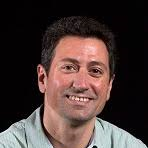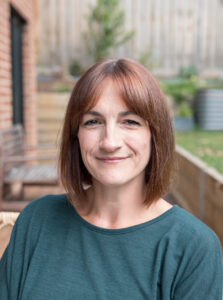Management and Governance
BBNet has an Executive Group that is responsible for the Network aims, and a Management Board that shapes strategy, advises and monitors the Executive Group, assesses applications for pump-priming funds, and safeguards the interests of the Network.
The Executive Group

Neil Bruce (Network Director)
Director of CNAP | University of York
Professor Neil Bruce is the Director of the Centre for Novel Agricultural Products (CNAP) and Professor of Biotechnology at the University of York. His research focuses on the biodegradation of lignocellulose in marine and terrestrial environments – particularly in the context of discovering enzymes for biorefining of lignocellulosic biomass for the production of biofuels and chemicals.
In other research Neil explores plant and microbial metabolism of xenobiotic compounds and characterisation of the enzymes mediating these metabolic processes. His group has discovered a diverse range of enzymes that have environmental and biotechnological applications. He has directed large and complex multi-national projects, including two multi-partner EC Marie Curie programmes.
Neil is Director of the Phase 2 BBSRC NIBB, the Biomass Biorefinery Network. He has served on numerous Committees and Panels for the BBSRC and is currently a member of the BBSRC’s Appointments Board. He serves as a Board Director for the Biorenewables Development Centre at York (part of BioPilots UK).

Dimitris Charalampopoulos (Network Co-Director)
Professor of Food Biotechnology | University of Reading
Dimitris Charalampopoulos is a Professor of Food Biotechnology at the Department of Food and Nutritional Sciences at the University of Reading. His research focuses on the valorisation of food by-products through biotechnological methods (microbial fermentation, enzymatic processing), targeting the production of functional food ingredients, speciality chemicals and biopolymers.
Dimitris was the Director of the BBSRC Network FoodWasteNet (2014-2019) and is currently a Co-Director of the BBSRC Biomass Biorefinery Network (BBNet, 2019-2026) and a Co-Investigator in the UKRI Agri-Food Net Zero Network (2022-2025). He is a member of the Food Standards Agency (FSA) Advisory Committee on Novel Foods and Processes (2022-current) and serves as Senior Editor of the journal Food Chemistry (2020-current).

Michele Stanley (Network Co-Director)
Scottish Association for Marine Science

Patricia Thornley (Network Co-Director)
Director of the Supergen Bioenergy Hub and the Energy and Bioproducts Research Institute | Aston University
Professor Patricia Thornley has over 30 years’ experience working on energy projects in industry and academia (including around 20 commercial plants focused on risk management of advanced technology implementation). She regularly advises on issues related to bioenergy, has been Director of the UK’s Supergen Bioenergy Hub since 2012, leads a centre for doctoral training in negative emission technologies and leads the policy unit of the UK National Clean Maritime Hub.
Her research interests focus on sustainability assessments of energy systems, evaluating the environmental, economic and social consequences of implementation pathways at the interface of the academic, policy and industrial communities. She is an appointed member of the Department for Transport’s Science Advisory Council, Defra’s Tree and Woodlands Scientific Advisory Group and the Royal Society’s Intnernational Strateigc Prioriteis Fund. In 2021 she was elected to the Fellowship of the Royal Academy of Engineering and serves on its Green Futures steering committee.

Lucy Booth (Network Manager)
BBNet Network Manager | University of York
Lucy became the BBNet Network Manager in February 2024; she has over 15 years’ experience in project and programme management and has managed both European and UK funded programmes. She has worked within the science sector for over ten years, most recently as Science CPD Programme Manager for STEM Learning, managing a DfE funded programme of CPD for science teachers from early years through to post 16.
Prior to that Lucy worked at the Biorenewables Development Centre, managing ERDF and economic development funding programmes supporting local businesses to scale up their innovative projects and processes.
Lucy’s background in the arts ensures she applies a creative approach to her work, and having completed a BA in drama with a specialism in stage management she is well equipped to manage a network of scientists and advocates alike.
Lucy has held several voluntary positions; most recently she spent seven years as the treasurer of her children’s primary school PTA raising much needed funds for enrichment activities and equipment, and whilst at University she spent two years as the Chair of the Raise and Give committee.
The Management Board

Yvonne Armitage
Principal Strategic Programme Manager | Centre for Process Innovation (CPI)
Yvonne Armitage works in the Strategic Programme Team at CPI, UK where she is focused on working collaboratively with industry and academia to identify and develop opportunities for new capabilities in engineering biology (EB) and future food systems. CPI is a founding partner of the UK High Value Manufacturing Catapult supporting companies to develop and scale-up their technologies, effectively derisking ready for commercialization through expertise and assets.
Yvonne is passionate about engineering biology and industrial biotechnology having spent 30 years in the field, 20 of those in large company research, where she gained first-hand expertise in taking bioprocesses from design to full scale production as well as roles in technology transfer and strategy. Prior to her current role at CPI, Yvonne was Director of the Biotechnology Group, home to the National Industrial Biotechnology Facility.
Yvonne has a degree in chemistry and PhD in microbiology and biochemistry and is a member of a number of scientific and management boards, including the Industrial Biotechnology Leadership Forum. Yvonne is a mentor and coach, especially keen on supporting women working in STEM roles.

David Bott
Head of Innovation | The Society of Chemical Industry (SCI)
After 26 years with BP, Courtaulds and ICI, spent leading research groups in both their corporate centres and business units, David discovered an interest in start-ups over 20 years ago. He was diverted into spending 7 years setting up and directing the Technology Strategy Board (now rebranded as Innovate UK), the UK’s innovation agency where he was responsible for all the innovation programmes.
He is a Principal Fellow at WMG, and Head of Innovation at the Society for Chemical Industry. He has been a non-executive Director of Oxford Advanced Surfaces, a member of Sheffield University Council, chaired Oxford Biomaterials and throughout has engaged in a wide variety of activities involving materials, design, sustainability and innovation.

Simon Charnock
Prozomix Ltd

Sarah Davidson
Technology Development Lead | Croda Europe Ltd
Sarah has several years’ experience working in the chemicals industry, and in that time has become a specialist on sustainable chemistry. Previous experience includes being CIAs Young Ambassador, holding a position on their board, secretary of the SCIs Sustainable Materials for Consumer Products committee and subject matter expert in EC consultations on Safe and Sustainable by Design criteria.
In her day job, Sarah indulges her passions for science and sustainability, through her role as Technology Development Lead at Croda. In this role she coordinates Croda’s external collaborations, building a vast external network. Prior to this, she has had various roles in Croda in R&D and Corporate Sustainability, following the completion of her Master’s in Chemistry with Industrial Experience from the University of Sheffield. She sits on the BBIA board and chairs their Biochemicals and Biomaterials group.

Mark Gronnow
Process Development Unit Manager | Biorenewables Development Centre
Mark is currently leader of the Process Development Unit at the Biorenewables Development Centre (BDC) in York. The centre has been set up to bridge the gap between industry and academia by supporting SMEs, demonstrating new technologies at scale and promoting the bioeconomy. His career history covers applied clean technology research, technical management/manufacturing at a healthcare diagnostics SME and technical management at the Green Chemistry Centre of Excellence prior to setting up the BDC in 2012.
Mark specialises in innovation support through technology transfer – up and downstream processing, winning public funding and proof of concept through to prototype development in the bioeconomy, waste valorisation and chemistry sectors. His research interests include adding value to biomass, sugar platform and novel technology development.
Mark is a Chartered Chemist and Fellow of the Royal Society of Chemistry. He has previously been a member of the RSC Industry and Technology Division Council, JetZero Council and Industrial Biotechnology Leadership Forum. He currently sits on the Circa Renewables Chemical Institute advisory group and is a Royal Society of Chemistry Change Maker mentor.

Claire Halpin
Associate Dean of Research | University of Dundee
Professor Claire Halpin is Associate Dean of Research in the School of Life Sciences at the University of Dundee, and Professor of Plant Biology and Biotechnology. Her research focuses on plant cell walls, particularly on understanding and manipulating lignin biosynthesis so that crop biomass can be improved both to sustain food security and for other agricultural and industrial processes.
Claire is passionate about the opportunities offered by plant breeding and biotechnology for future crop improvement. She is editor of the Transformative Plant Biotechnology Section for the journal New Phytologist and convenes the Plant Biotechnology and Synthetic Biology group of the Society for Experimental Biology. She has served on numerous BBSRC panels and committees and on EFSA and EPSO working groups related to plant biotechnology and new breeding technologies.

Gavin Milligan
Director | Green Knight Sustainability Consulting Ltd.
Gavin works with clients on developing and delivering sustainability programmes in line with their overall commercial strategy. With 30 years’ experience in the corporate world up to Board level and 7 as an independent consultant, he has a wealth of knowledge about systems, resource efficiency, sustainability strategy and global supply chains.
Gavin’s 20+ years in the agri-food sector include roles in supply chain, operations, commercial and product development and he currently sits on multiple industry and academic advisory boards. He has developed and delivered Masters-level content on evaluating environmental sustainability for Cranfield University, covering the theory and practice of Lifecycle Assessments, and lectured on supply chain accounting at the Triple-Crown accredited Sheffield University Management School.
He Chairs the Sustainability Steering Group at the IFST, where he is a fellow, and has worked with clients in aerospace, agri-food, construction, energy, engineering, healthcare, packaging and retail. Project roles include regulatory advice and technical support.

Nigel Minton
SBRC Director | University of Nottingham
Professor Nigel P Minton is the Director of the BBSRC/EPSRC Synthetic Biology Research Centre (SBRC) and Professor of Applied Molecular Microbiology at the University of Nottingham. His research activity ranges from combating bacterial pathogens, through the development of novel cancer therapies to the sustainable production of chemicals and fuels from C1, C3 and C5/C6 feedstocks, with a particular focus on gas fermentation.
A former programme leader of the BBSRC Sustainable Bioenergy Centre (BSBEC), Nigel has held US NIH and NCI funding and has previously coordinated seven EU projects. He is currently the Director of the BBSRC ‘Carbon Recycling Network’ and co-leads the ‘Next Generation Therapeutics’ theme of Nottingham’s NIHR-funded BioMedical Research Centre (BRC).
Nigel has been awarded doctor honoris causa by the University of Helsinki for his contributions to combating botulism, held a Royal Society Wolson Merit Award and served on the scientific advisory boards of Cobalt, Deep Branch Biotechnology Ltd and LanzaTech. He is a co-founder and chairman of the genome editing company Forge Genetics Ltd.

Andy Pickford
Professor of Molecular Biophysics | University of Portsmouth
Andy is Professor of Molecular Biophysics and the Director of the Centre for Enzyme Innovation (CEI) at the University of Portsmouth. His principal research interest is the relationship between structure, flexibility and function in enzymes that degrade challenging natural and man-made polymers, such as plastics and collagen.
Andy gained his undergraduate degree in Biochemistry from the University of Oxford and, after gaining his DPhil (also in Biochemistry), continued at Oxford as a Research Associate studying the structural biology of the extracellular matrix using NMR spectroscopy as his principal research tool. He joined the School of Biological Sciences at the University of Portsmouth in 2005, and has been Professor of Molecular Biophysics there since 2020. Having benefited himself from enthusiastic and inspirational teaching, Andy delights in passing on that enthusiasm to his own students in lectures, tutorials and the laboratory, in the hope that it will inspire them to pursue a career in biological science.
Andy also leads the Preventing Plastic Pollution with Engineering Biology (P3EB) Mission Hub, a UKRI-funded consortium aimed at advancing enzyme and microbial solutions for efficient plastics recycling and upcycling.

Nilay Shah
Professor of Process Systems Engineering | Imperial College London
Nilay Shah is the Co-Director of the new Convergence Science School of at Imperial College London. Nilay Shah’s research interests include the application of process modelling and mathematical/systems engineering techniques to analyse and optimise complex process and energy systems and their associated supply chains, with a particular interest in clean energy, biorenewables and bioprocessing, including synthetic biology.
He also works on the application of model-based methods for plant safety assessment and risk analysis. He has published widely in these areas and is particularly interested in the transfer of technology from academia to industry. He has provided consultancy services on systems optimisation to a large number of process industry companies.
He is a chemical engineer by background and has been the recipient of a number of awards including IChemE Junior Moulton Medal (1996), an RAEng/ICI Engineering Fellowship (1997-2001), the Royal Society of Chemistry Beilby Medal and Prize (2005), the Imperial College Rector’s Award for Research Excellence (2006), RAEng MacRobert Award (as part of a team, 2007), Imperial College Engineering Teaching Excellence Award (2009) and IChemE Hutchison Medal (2012). He is a Fellow of the IChemE and Royal Academy of Engineering.








